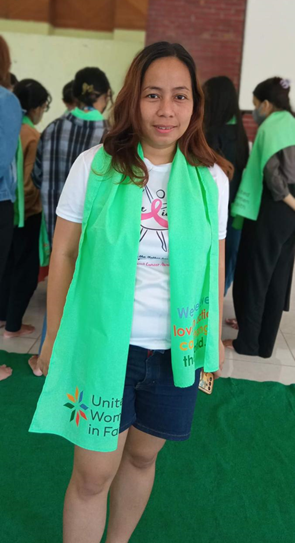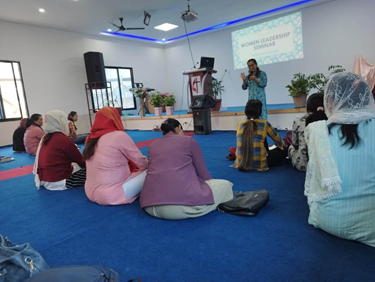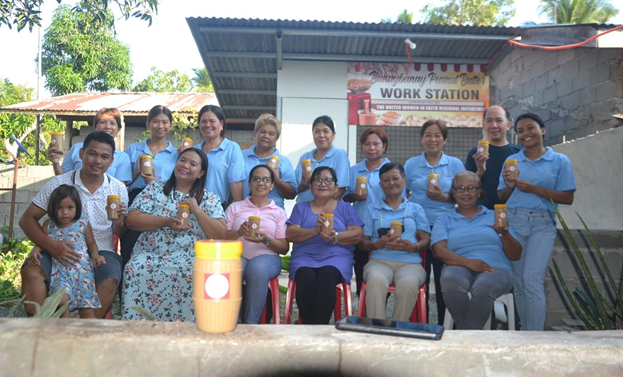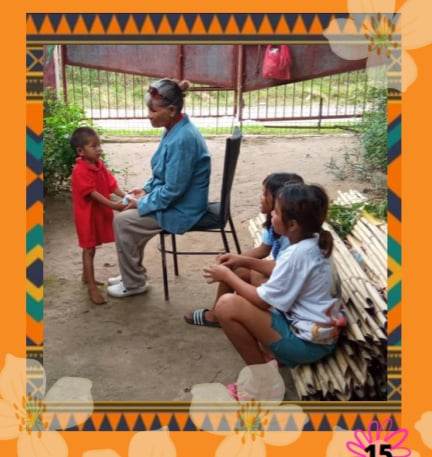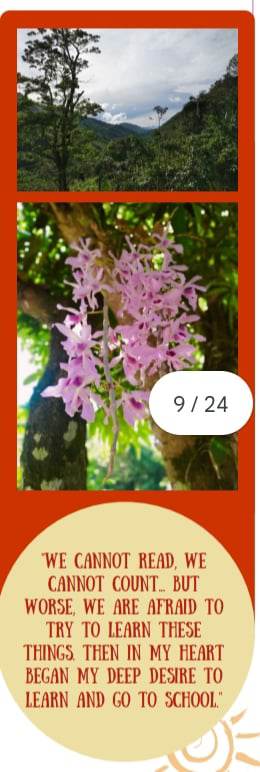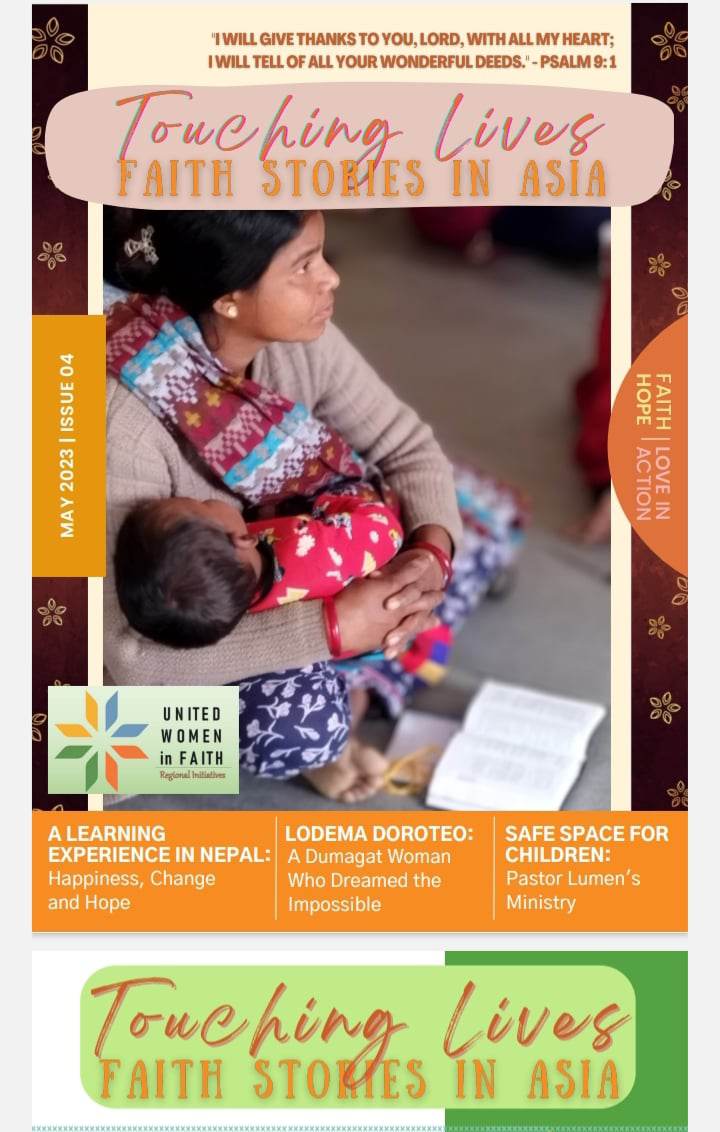Banaybanay UMC is a humble church amid the rice granary. As a rice granary and highly agricultural area, the primary livelihood of most people is rice farming. Agriculture is a modest sector in society, but it is the reason why people live and those involved in this sector do not gain that much income.
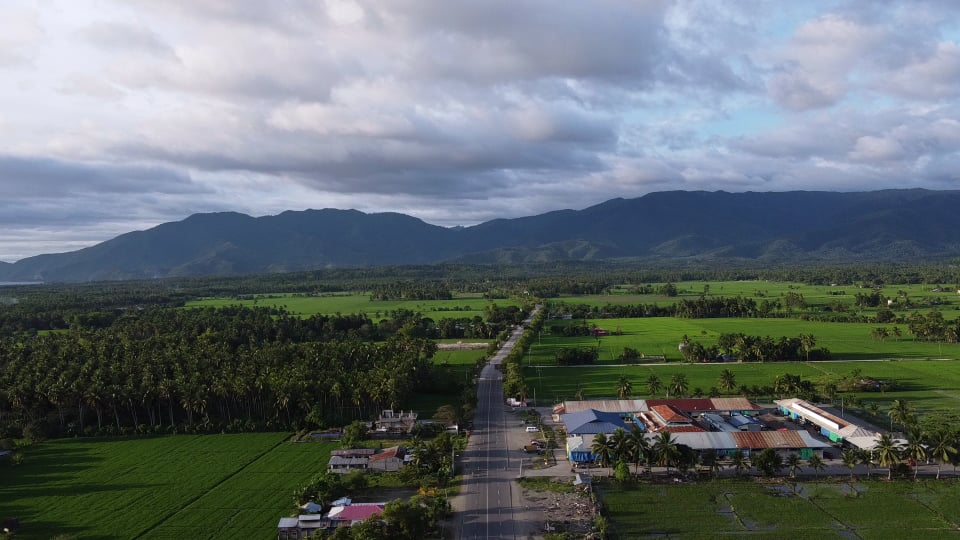
Aerial View of the Municipality of Banaybanay, the rice granary of Davao Oriental
Here in our church, the active women range from 46 to 70 years old. They are composed of some retired teachers, retired workers from government agencies, barangay functionaries, but the others are mostly housewives or assist their husbands in planting, maintaining, and harvesting rice in their farms.
The meager earnings of the women made it hard for them to give much to the church, especially during the season of waiting for the harvest. They say the period of waiting is also a period of crisis. They can only give their tithes during harvest time. They compensate by giving through in-kind or material means. Given this situation, it is difficult to initiate or sustain their projects in the church. The first livelihood project of the women in Banaybanay UMC was the Peanut Butter Making. Due to the insufficient funds, the project was not stable because they relied on their own pockets to contribute to the capital. Suddenly, a blessing came from the United Methodist Women, a capital of 5,000.00 to fund the livelihood project. Since then, the project became regular, and it has no longer been a burden to the women to contribute a certain amount just to keep it going.
Deley Valladolid is one of the women who participated in this project ever since it started. She shared that seeing the women of the church being more active especially when the peanut butter making has become regular encouraged her to express her faith through enthusiastic participation in the church ministries. In the previous years, it felt burdensome for her to contribute an amount for the capital given that she is a housewife who only relies on harvest income. She is grateful that the United Methodist women’s support to the project has somehow eased her burden and because of that, she has become more passionate about serving the Lord.
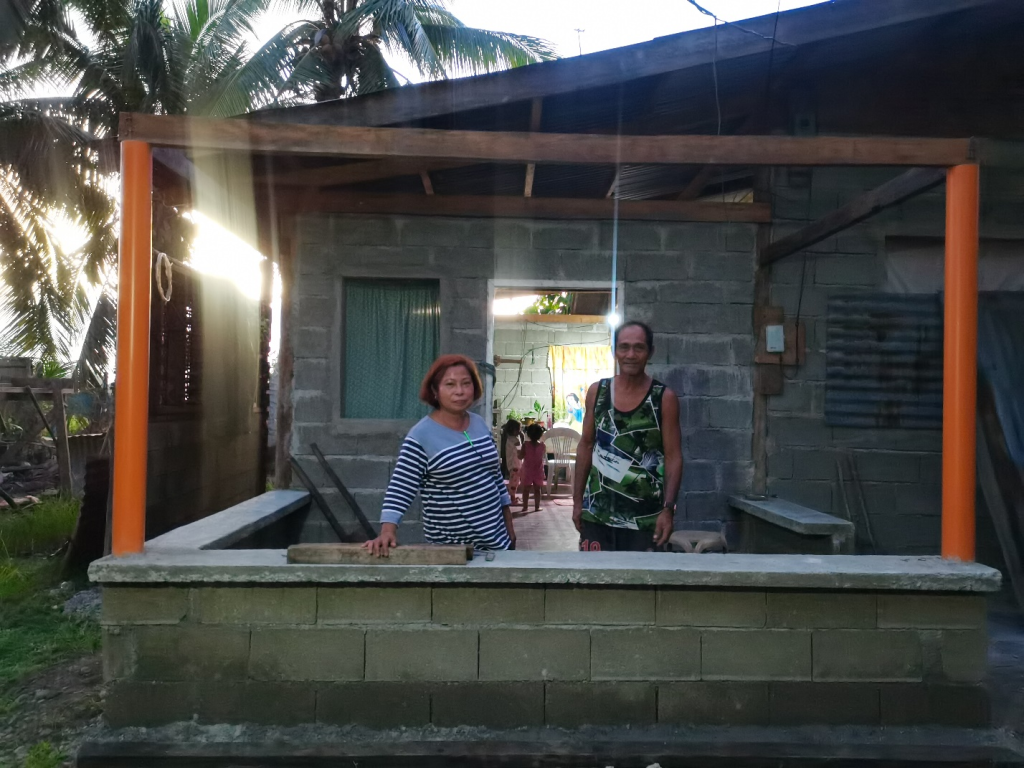
Mrs. Deley Valladolid (housewife) together with her husband, Emeterio Valladolid (farmer/maintainer)
Lita Robel admitted that she was on hiatus from the church for a couple of years. Despite not going to the church, her connection with the women never stopped because sometimes they would cook the peanut butter in her home. When the project was continued and became stable, she was encouraged to go back to church and commit to the project. The women immediately nominated her as Treasurer of the local women’s organization of the church. She is now managing the finances of the women’s organization, especially the expenses and income from the Peanut Butter Project. At present, she is not just committed to the project but all the undertakings of the church, along with the other women who are frontrunners in the church ministries. For her, the help of the United Methodist Women was an unexpected blessing. The support nudged them to be goal-oriented. According to her, having a goal as an organization strengthened their ties and challenged them to make their organization self-sufficient. She also acknowledged that her faith increased because they did not expect or pray for such monetary assistance to come to them, and God gave them this grace out of the blue through the generosity of the United Methodist Women.

Mrs. Lita Valdez Robel attending to a customer who is buying from her store
The income from the project also made it possible for them to have their first-ever retreat and recreation at the province of Bukidnon last January 9-11, 2022. Bukidnon is distant from Davao Oriental and because of their earnings, what seemed impossible for them to do before became possible. Before, it was unattainable for them to ever hold a retreat outside Davao Oriental due to their measly income, but it was all made possible because of this project. The retreat gave them a refreshing start for 2022, deepened their connection with each other, and continued to kindle their fire in serving God and the church ministries.
Being with them from the time the United Methodist Women gave their support and being hands-on in making the peanut butter with them, I noticed a significant improvement in them individually and as a group. They became selfless that they are not after what they can get from this project but how they can help the church and others through this venture. Moreover, they became more participative in other ministries. Mrs. Yasay, one of the recipients said, “We are grateful that the UMW noticed us.” It is a nice realization that God is indeed watching over us despite being a humble church in a modest province, and we became more confident since we were chosen out of the many groups or churches. When I reflect on the story of God giving attention to the women of our church through the United Methodist Women despite our simplicity and anonymity, it reminds me of the verse from Romans 9:16: “It does not depend on human desire or effort, but God’s mercy.” We did not work for it, or we did not even ask for it, but in God’s mercy, His favor was upon us through the UMW. Despite the pandemic, our organization is thriving and growing, and the members are getting more equipped, confident, and maturing in faith. We owe and dedicate our victory to the United Methodist Women. I am reminded of a quote by Camille Pissarro: “Blessed are they who see beautiful things in humble places where other people see nothing.” The help shared by the United Methodist Women now Unioted Women in Faith to the humble church of Banaybanay UMC is not only a blessing to the church, but for sure, will bless the UMW even more.
Article Contributor: Theresa Eleanor Paano-Barrientos
Photos by: Charrypie Castillo for the United Women in Faith

